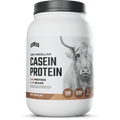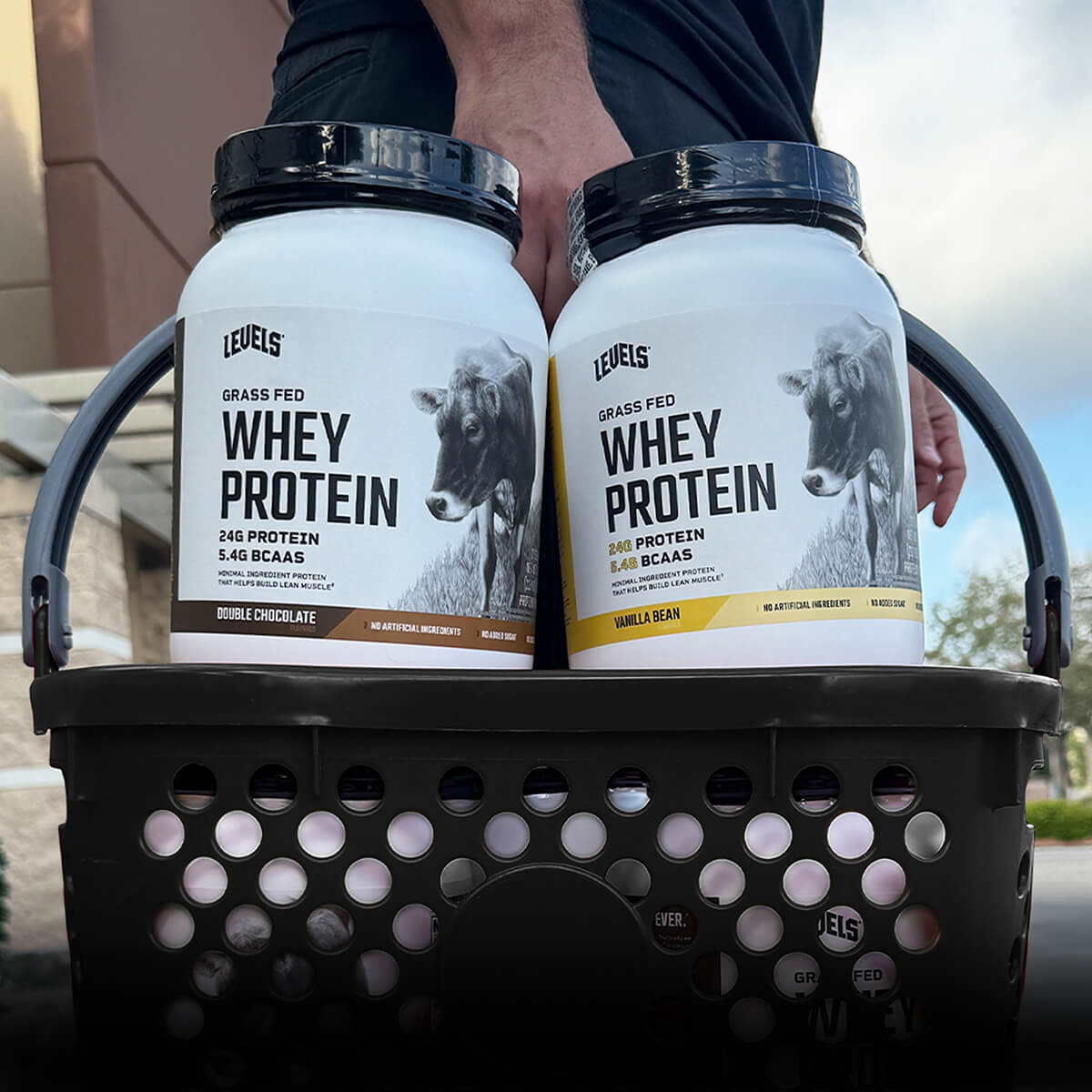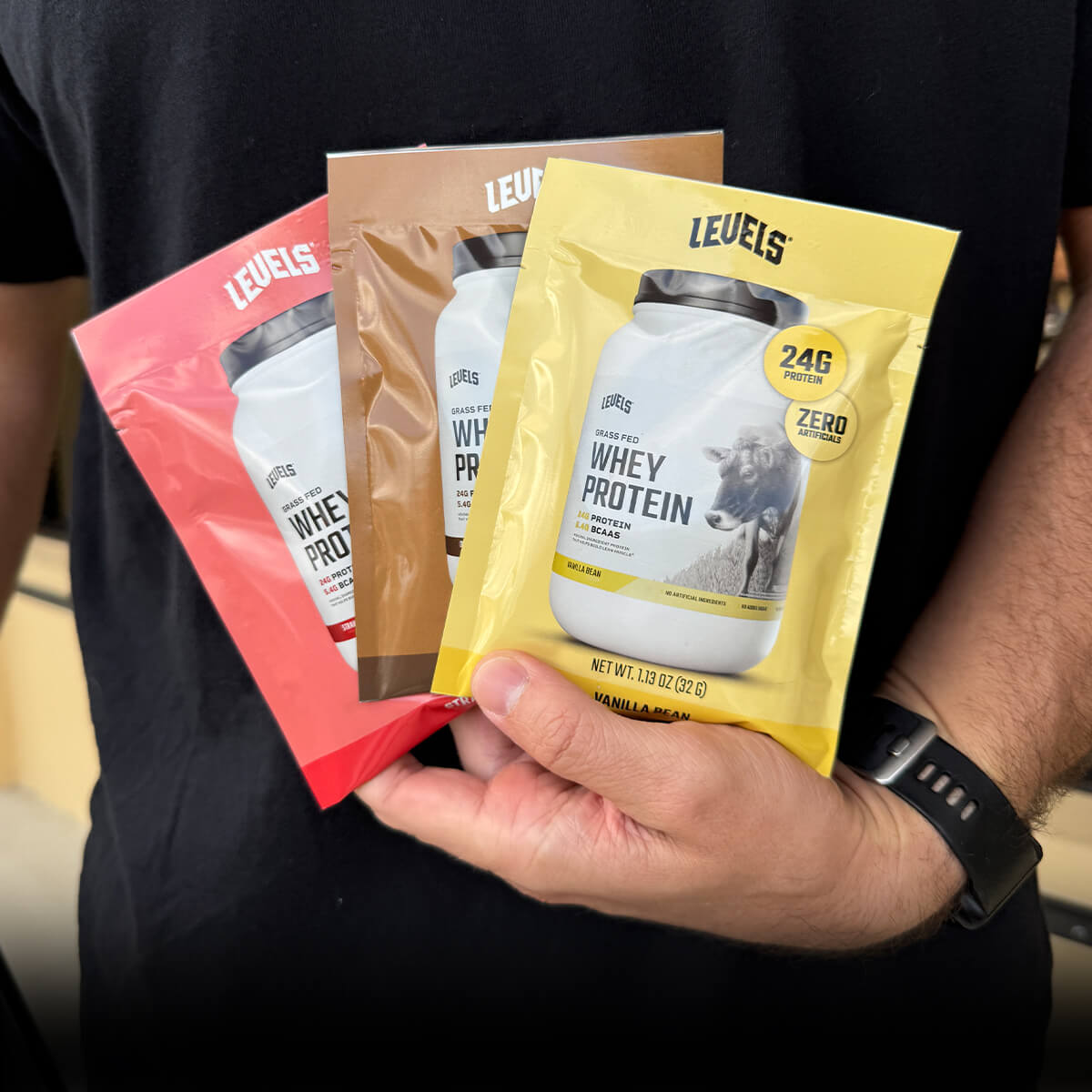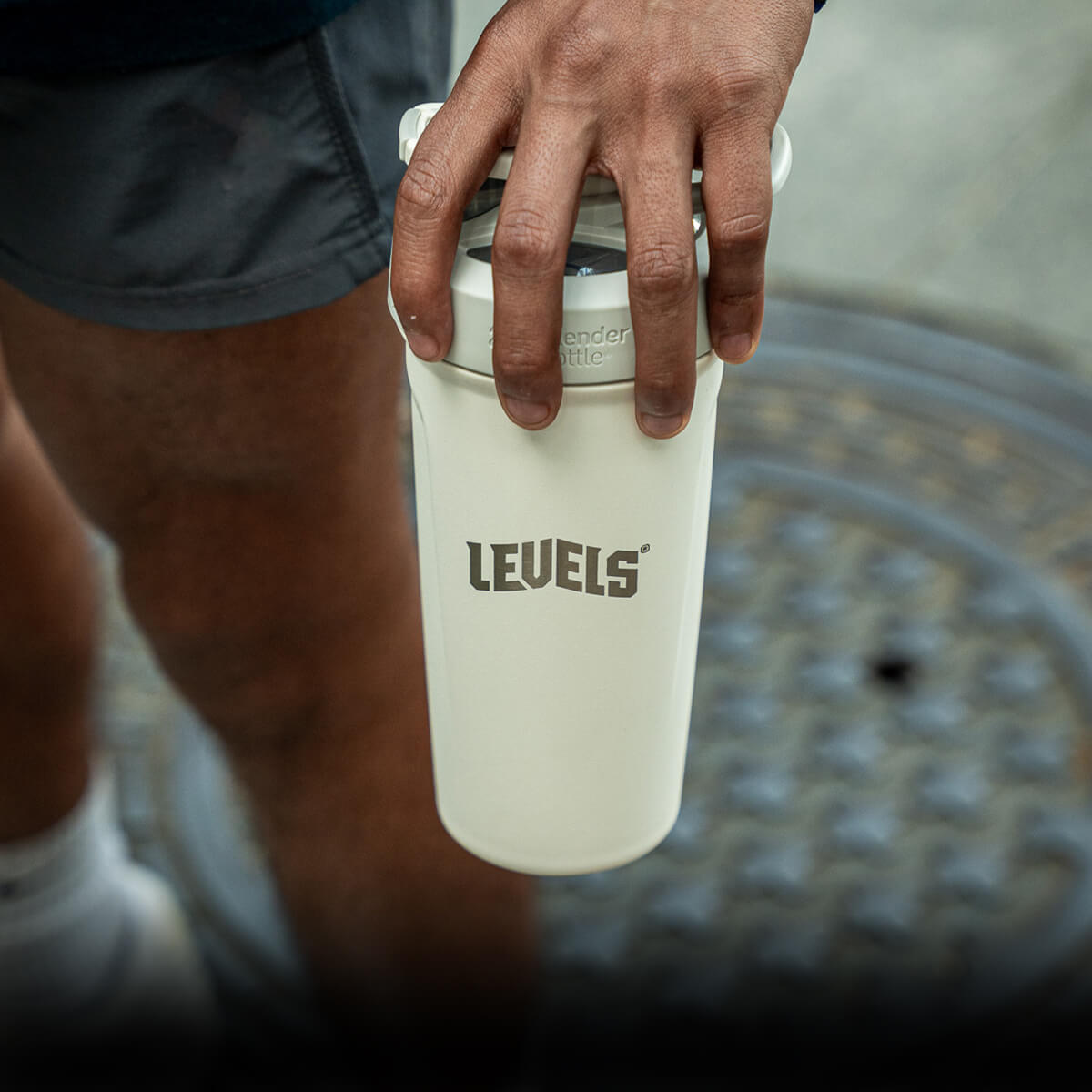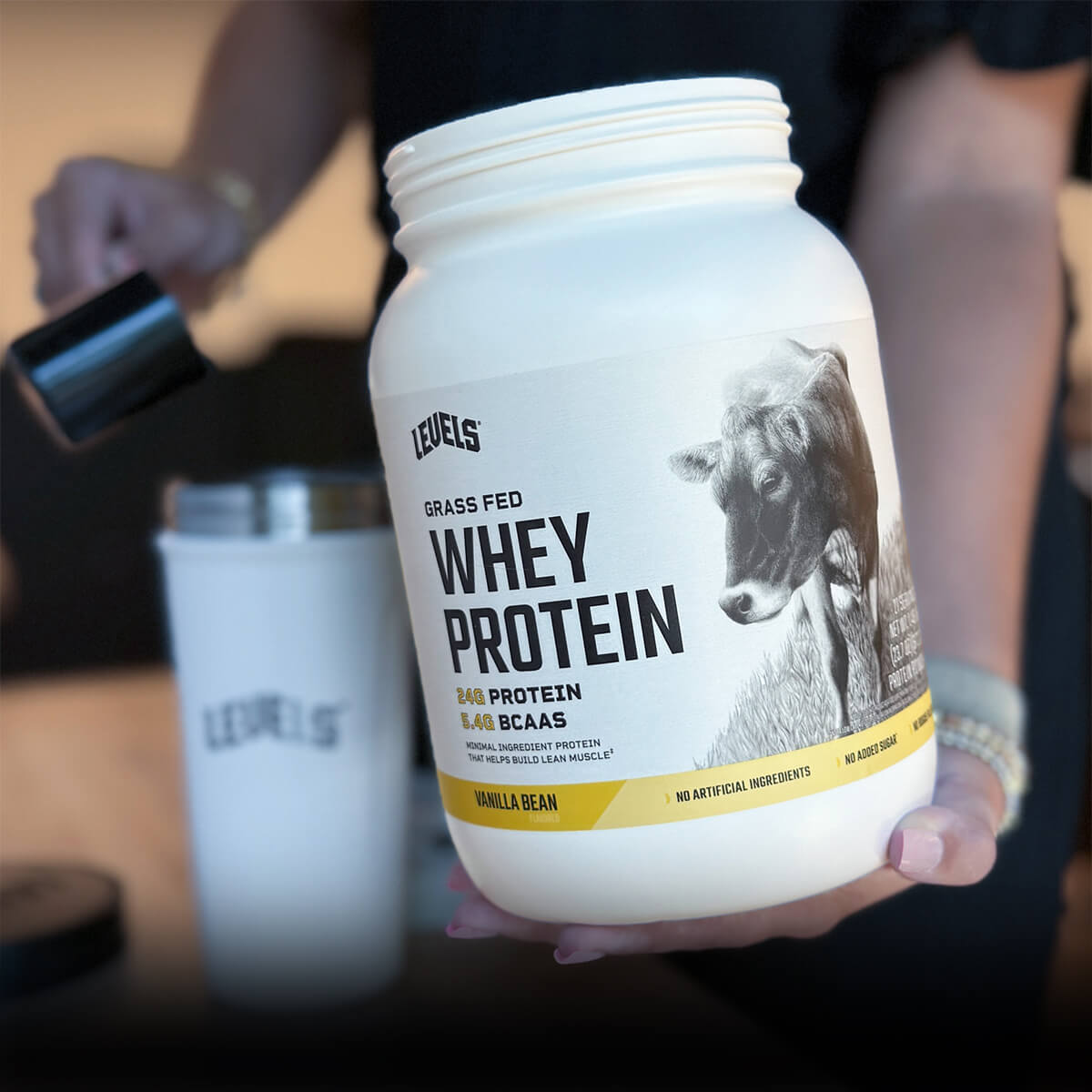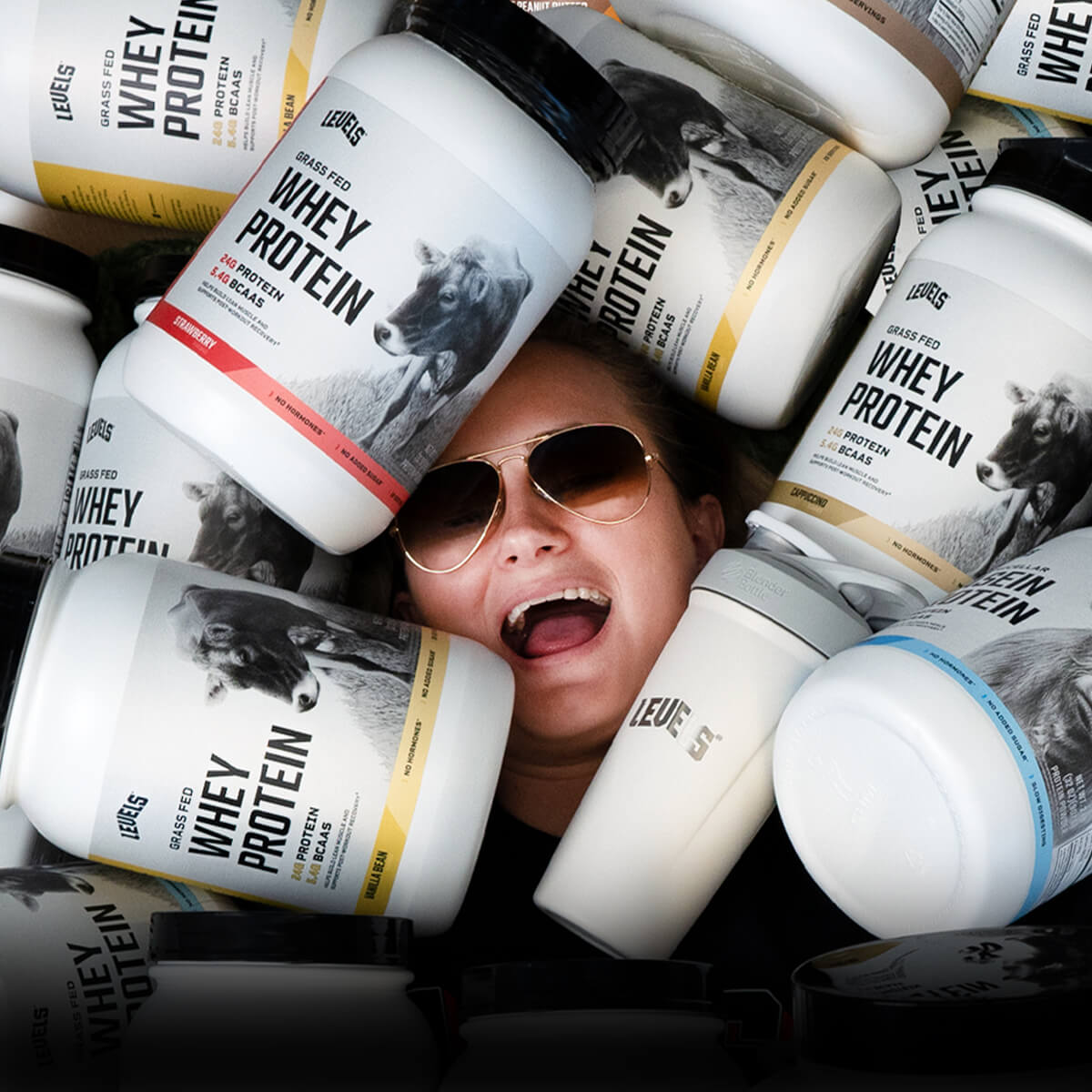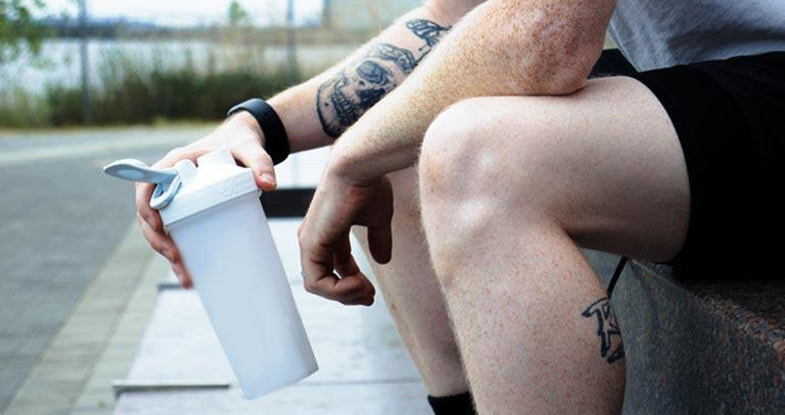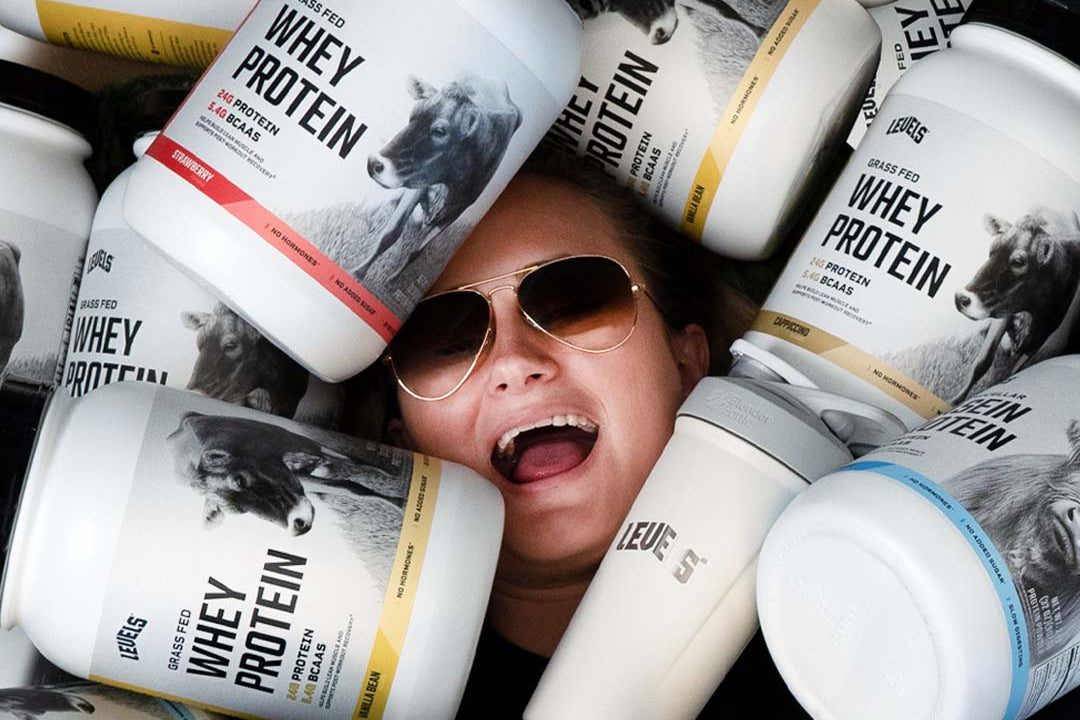Consuming slow-acting protein before bed is a popular approach in sports nutrition. Some research suggests this tactic has the potential to enhance muscle growth, speed up recovery, and increase performance.
However, eating before bed could potentially detract from your sleep quality and even your long-term health, especially if you go about it the wrong way.
In this article, you’ll learn what science says about drinking protein shakes before bed, the pros and cons of eating protein and other macronutrients before bed, who should consider pre-bed shakes, and three tasty pre-bed muscle-building recipes.
What Happens When You Drink a Protein Shake Before Bed?
In recent years, numerous peer-reviewed studies have examined the effects of protein shakes before bed.
Most of the time, scientific studies use slow-absorbing casein protein for this purpose. But sometimes, they also compare the effects of fast-absorbing whey protein in contrast to the effects of casein before bed.
If you aren’t familiar with the differences between whey and casein, learn more here: Casein vs. Whey: The Similarities and Differences Explained.
Or for a more in-depth overview of how your body metabolizes protein, check out Protein Absorption: Everything You Need to Know.
Otherwise, keep reading for easy-to-understand summaries of the scientific findings on pre-bed protein.
Muscle Growth
In a 2012 study published in Medicine & Science in Sports & Exercise, researchers had 16 healthy young men lift weights, then consume either 40 grams of casein protein or a placebo before bed[*].
They found that the men who consumed the slow-acting casein protein had higher rates of whole-body protein synthesis, as well as a higher net protein balance. Both of these findings could point towards better recovery from exercise, thanks to the casein shakes.
And most notably, the men who drank casein before bed had muscle protein synthesis rates 22% higher than men who did not. In other words, over time, drinking a casein shake may result in increased muscle-building.
On the other hand, a separate study from 2018 compared the effects of daytime casein protein to nighttime casein taken before bed[*].
During the comparison, the researchers found similar results on muscle size and strength, meaning that while casein protein enhances muscle growth and performance, drinking it before bed may not be an essential factor.
Similarly, a 2017 study of men and women with prior training experience found that neither daytime nor nighttime casein protein had any effect on body composition[*].
And according to a 2019 review, the current research suggests that consuming 40 grams or more of slow-acting protein before bed is effective for enhancing muscle protein synthesis, but only following evening exercise[*].
Also, it’s still not clear from studies whether the pre-bed timing or simply increased overall protein intake is responsible for the heightened muscle-building[*].
Exercise Performance and Recovery
According to a 2018 study of men and women from the journal Sports, 40 grams of pre-bed casein protein did not enhance recovery or performance following daytime exercise[*].
Additionally, a separate small study from 2018 found no benefit on next-day resistance exercise performance when physically-active women drank whey protein or casein protein before bed[*].
But in contrast to the above findings, a 2019 study of 10 professional soccer players found that compared to a placebo control, 40 grams of casein protein before bed enhanced functional recovery as measured by physical performance and muscle soreness[*].
Weight Loss and Metabolism
A 2018 study of physically-active women published in the journal Nutrients found a 4% increase in resting metabolic rate the next day from consuming 48 grams of casein protein before bed[*].
However, the result was not statistically significant. In other words, the study findings on metabolism may well have been due to random chance.
Regardless, burning 4% more calories is not a game-changer for fat loss--especially since the women had to consume an extra 192 calories (kcal) in the form of protein first.
And the same study found that consuming whey protein before bed (as opposed to casein) may lower fat oxidation[*].
And a 2016 study of young obese men found that although pre-bed casein did not alter lipolysis (the release of stored fat), fat-burning, GH levels, insulin, or glucose, it also didn't increase energy expenditure or reduce appetite[*].
Therefore, while the 2016 study didn’t find any adverse effects on fat loss, it also showed no benefit to drinking casein before bed, either.
To sum up, it’s safe to say that based on recent research, drinking a protein shake before bed isn’t the best practice for weight loss.
Pros and Cons of Eating Before Bed
So far, we’ve discussed mixed findings from studies on consuming slow-acting protein before bed.
A few studies showed a positive outcome for muscle growth, performance, or recovery, while others didn’t. Conversely, no studies showed any appreciable benefit for metabolism or fat loss.
And now, it’s time to take a closer look at the potential tradeoffs of eating before bed.
Circadian Rhythms and Sleep
Your circadian rhythms are your body’s natural 24-hour rhythms. In addition to affecting your sleep schedule, they also control other vital aspects of your health, such as your hormone levels.
Mismatched or inconsistent circadian rhythms, such as those of nighttime workers, for instance, are associated with higher rates of cancer, heart disease, and even mental health issues such as depression[*].

And while light exposure is the most significant factor in determining your circadian rhythms, food intake also impacts your body’s internal timekeeping[*].
For example, research suggests that eating late meals can alter your 24-hour hormonal profile[*][*].
Therefore, while drinking a protein shake before bed may be useful temporarily for building muscle, it’s probably not a wise life-long habit for your health.
Glucose and Insulin Levels
Eating carbohydrates before bed can elevate glucose and insulin levels, which may lead to insulin resistance[*].
And since insulin resistance is closely associated with the development of type 2 diabetes, avoiding carbs before bed is wise for your health[*].
Somewhat similarly to carbs, whey protein also increases insulin levels[*]. The insulin spike from whey isn’t necessarily a bad thing (it’s very likely helpful for post-workout muscle-building, and has even been investigated for blood glucose management in people with type 2 diabetes)[*][*].
Furthermore, there’s no evidence that whey protein consumption leads to insulin resistance.
Fat Oxidation and Metabolism
As we already discussed, current data suggests that pre-bed casein doesn’t reduce fat-burning, but whey protein before bed does[*][*].
And eating any food, especially carbs--whether before bed or otherwise--lowers fat-burning compared to fasting (avoiding food)[*].
Therefore, if you want to maximize fat-burning, your best bet is to skip pre-bed meals. Or, if you don’t fast before bed, at least make sure to avoid carbs for a few hours before you sleep.

Additionally, a 2017 study from the American Journal of Clinical Nutrition found that, on average, people with higher body fat ate their meals later compared to lean people[*].
To quote the researchers, “the consumption of food during the circadian evening and/or night, independent of more traditional risk factors such as amount or content of food intake and activity level, plays an important role in body composition”[*].
While the 2017 study doesn’t prove that consuming protein shakes before bed will lead to inevitable fat gain, it does suggest that avoiding food for several hours before bed is wise if you want to stay lean.
Who Should Drink a Protein Shake Before Bed?
In a nutshell, you should consider a casein protein shake before bed if (and only if):
- Your goals include muscle mass or performance as opposed to weight loss
- You exercise regularly
- You’re already consuming plenty of protein
- You aren’t overweight
- You’re metabolically healthy
In contrast, if you aren’t intent on gaining muscle mass or boosting your recovery and performance, protein shakes before bed may not be worth the effort.
Also, keep in mind that slow-acting protein before bed may be more beneficial for people who train later in the day as opposed to earlier.
And if your goal is weight loss, or you’ve got metabolic issues like insulin resistance or type 2 diabetes, you’re probably better off skipping eating before bed, period.
3 Pre-Bed Recipes for Muscle Growth
Keep in mind that the calories, macronutrients, and food quality of your pre-bed meals can make a tremendous difference in your results and health.
Overall, research suggests low-calorie, high-protein meals before bed have the fewest adverse effects on blood glucose and sleep quality (as well as the greatest benefit for muscle protein synthesis).
In contrast, pre-bed meals high in calories, carbs, and fats are more problematic for your health and body composition[*].
In other words, don’t make a habit out of ordering off of fast food “dollar menus” late at night. Instead, use the recipes below to increase muscle growth with minimal impact on your sleep quality and waistline.
Cinnamon Cottage Cheese Bowl
This simple yet delicious cottage cheese treat has just 210 calories and provides 40-64 grams of protein (including 32 grams of casein), as well as generous amounts of the micronutrients phosphorus, selenium, and vitamin B12.
Ingredients:
- 1 1/3 cup (300 grams) low-fat cottage cheese (chilled)
- 1/2 tsp cinnamon
- 1/4 tsp organic vanilla extract
- 1/8 tsp stevia powder or 1/2 tsp monk fruit powder
- Optional for extra muscle-building: 1 scoop of vanilla cinnamon whey protein
Instructions:
- Mix ingredients together in a medium bowl using a spoon and enjoy!
Chocolate Protein Pudding
This healthy protein snack combines sugar-free pudding mix, casein protein, and low-fat Greek yogurt to deliver a decadent, tasty muscle-building miracle.
Ingredients:
- 1 box (1.4 oz) sugar-free chocolate pudding mix
- 1 scoop (30 grams) chocolate casein protein powder
- 1/2 cup low-fat unflavored Greek yogurt (chilled)
- 1 1/2 cup unflavored natural almond or hemp milk (chilled)
- 1/8 tsp sea salt (or to taste)
- A dash of organic vanilla extract (or to taste)
- Optional: 1/4 tsp organic cacao powder (or to taste)
Instructions:
- Combine all ingredients in a large mixing bowl
- Use an immersion blender to mix, or whisk by hand for 2 minutes
- Serve immediately or refrigerate
Vanilla Protein No-Churn “Ice Cream”
While you probably won’t mistake this pre-bed protein snack for real ice cream, it’s still delicious and filling--and fantastic for your muscle-building results. You can use an ice-cream maker if you have one, but this no-churn recipe also works with just a blender.
Ingredients:
- 2 cups low-fat coconut milk (chilled or partially frozen)
- 1 1/2 scoops (40-45 grams) vanilla casein protein powder
- 3/4 cup ice cubes or frozen coconut milk cubes
- 1/4 tsp stevia powder or 1 tsp monk fruit powder
- 1/4 tsp organic vanilla extract (or to taste)
- 1/8 tsp sea salt (or to taste)
Instructions:
- Add chilled coconut milk to blender and blend for 1-2 minutes until silky
- Add remaining ingredients and blend until mixture thickens
- Optional: add the mixture to an ice-cream maker
- Scoop, serve, and enjoy!
The Bottom Line
Some people swear by pre-bed protein shakes, while others choose to steer clear in light of the potential downsides.
And while research suggests a protein-rich meal before bed can boost your muscle-building results, it may not be the best long-term practice for your health.
Therefore, we recommend that you use a pre-bed shake (or one of the delicious high-protein recipes provided in this article) strategically, during mass-building phases only.
Also, make sure to limit fats and carbs as much as possible as you concoct your pre-bed protein meals.
Will you opt for a pre-bed protein snack or not? Do you have a favorite recipe you’d like to share? Let us know in the comments below!


